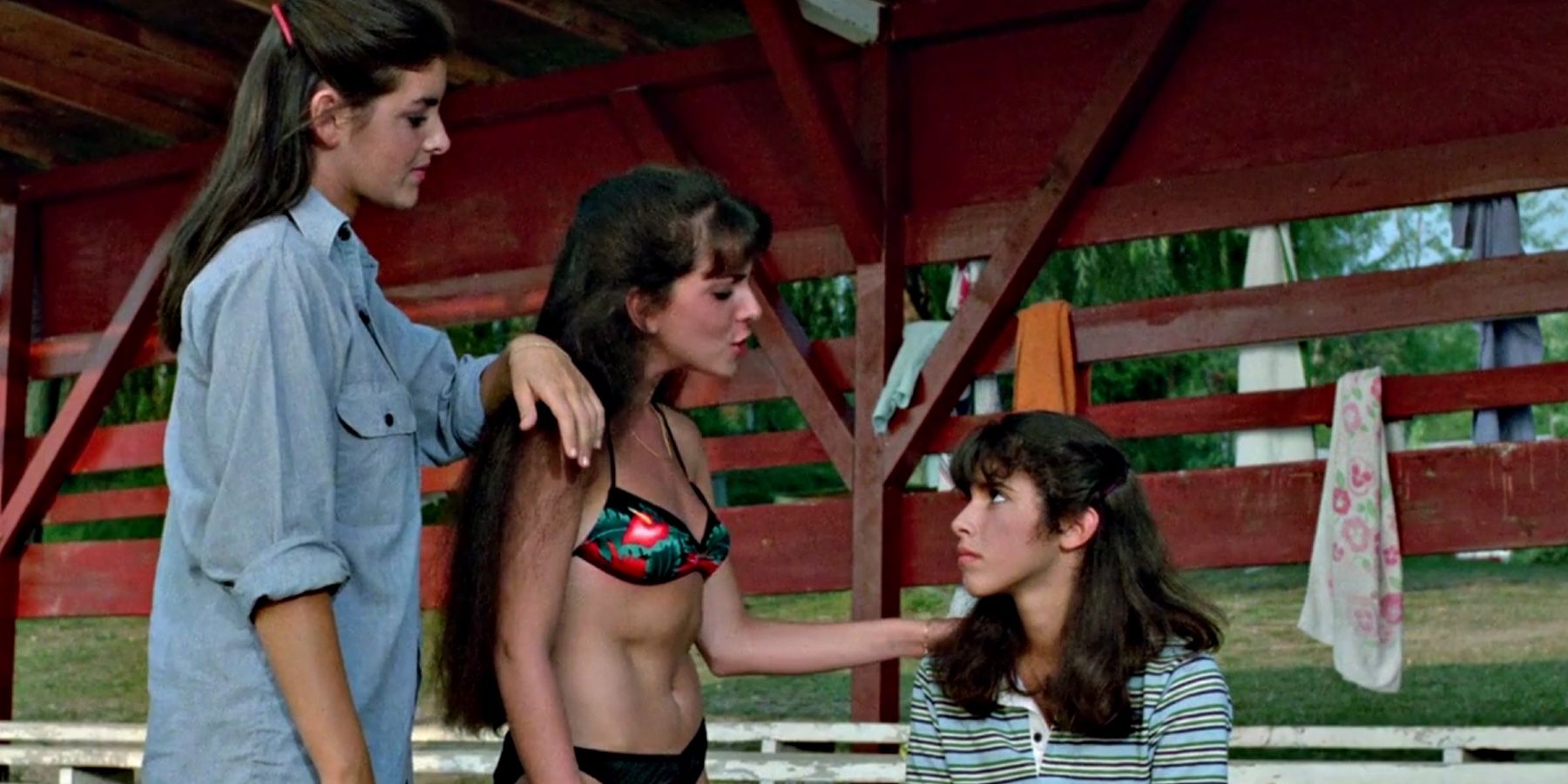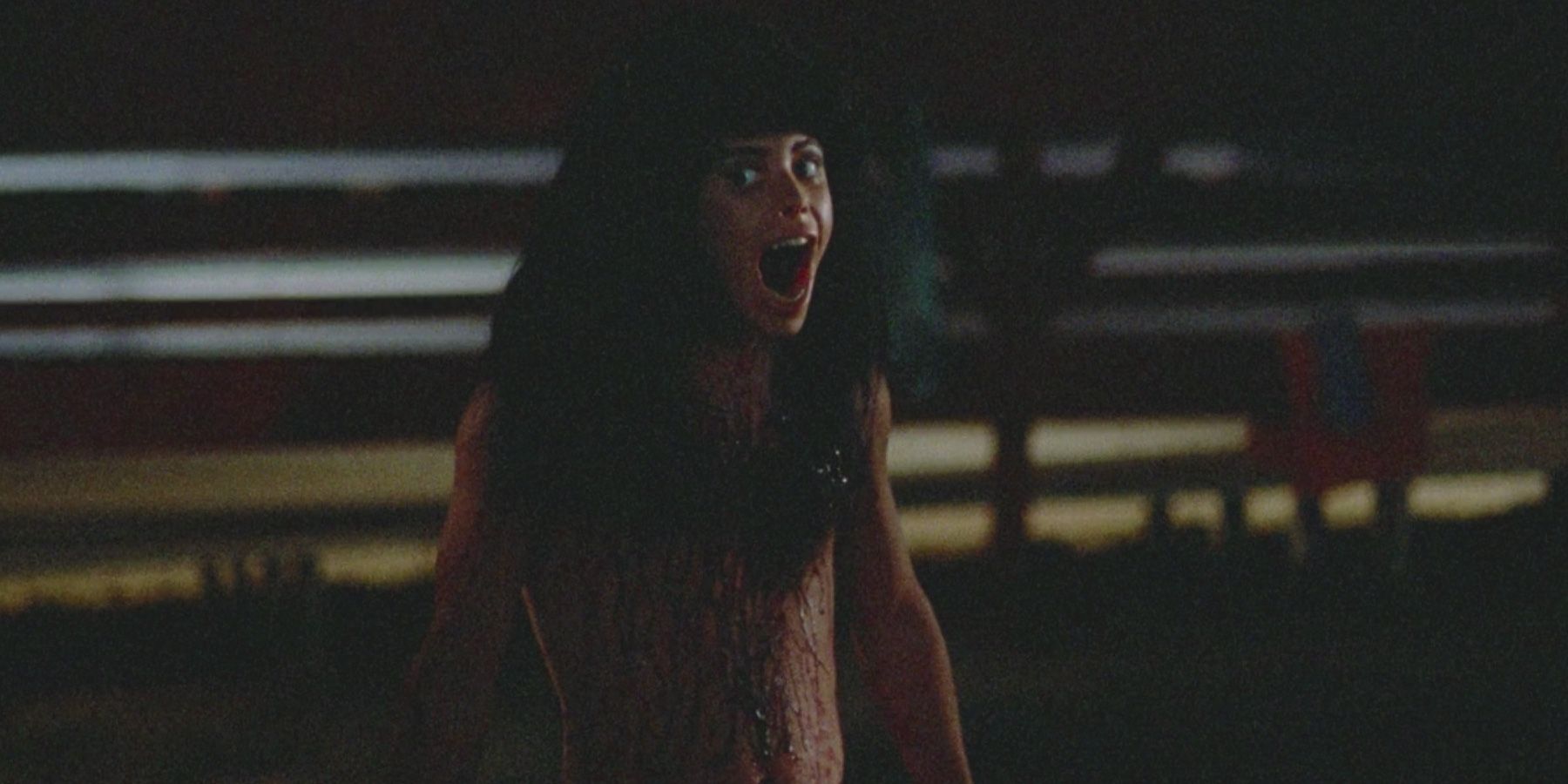When thinking about camp slasher films, Friday The 13th is most likely the first to come to mind. The original was released in 1980 and quickly turned into a hugely successful franchise, spawning multiple sequels. A less-recognized camp slasher film is Robert Hiltzik’s Sleepaway Camp (1983). Hiltzik’s low-budget turned cult classic has become and stayed a significant film among horror buffs and film scholars alike. Sleepaway Camp deserves acknowledgement for touching on taboo topics that were not discussed in the 80s and completely altering the “final girl” slasher film trope. The film also has a shocking twist that no one would ever expect.
Sleepaway Camp tells the story of a young girl named Angela, who is sent to a summer camp that becomes the site of a series of murders. Sleepaway Camp may appear to be a silly, beginner filmmaker’s typical 1980s slasher film, but it has quite a lot to say on several topics, including gender and sexuality. While some may not see the real meaning of this film, many see it as a genuine attempt to show how society enforces gender roles and stereotypes.
RELATED: Can There Ever Be Another Straightforward Slasher Movie?
The film begins with a flashback of a little girl (assumed to be Angela) and her brother on a boat ride with their parents, who are two men. Although Hiltzik never stated why he made the parents two men, it is essential to note that he chose to, especially in the early 1980s. Was this a comment on same-sex marriage, and was it positive or negative? Or was it just incidental? Indeed, the apparent happiness of this family on vacation presented a positive image. As the scene progresses, there is a horrible boat accident, and the parents are killed. Only one child survives the accident from the entire family, and that child is sent to live with their aunt. Once this scene is over, the film jumps into the present time, with the aunt sending off her son and niece, Angela, to summer camp.

While Angela and her cousin attend the summer camp, a series of murders begin to unfold. The film is shown through Angela’s pure and innocent eyes: Hiltzik provokes the audience to feel sorry for her. The manner that Sleepaway Camp manipulates the standard horror film archetypes makes this film unique and therefore carries a certain recognition among classic horror films. The allusions to the final girl trope are presented throughout the film and inhabited by Angela. Although many horror films have since deconstructed the classic trope, Sleepaway Camp was one of the first to do it. Angela’s sense of purity and indifference, the first kiss, and the males that help her, like her cousin, all point to the final girl archetype.
The “male monster,” a term coined by Stephen Neale, states that most monsters in horror films are men. This may not appear as prominent throughout Sleepaway Camp and is not defined by any particular character. However, although his presence may be muted, the anticipation of his emergence is palpable. Perhaps because of predetermined notions the spectator brings into the theater of the male monster, they are already looking at all the males in the story, assuming one of them is the killer. With this presumption of the killer being male, the director can place the male monster in the background as insignificant, allowing for the final shocking revelation of who the killer is.
It is only in the final scene that the killer is revealed. Angela is shown naked, with a knife, appearing to be the killer. The last line is uttered by a camp counselor who yells in horror, “Oh my God. She’s a boy!” The camera then zooms in on Angela’s screaming face, demonizing her. She is solely demonized once the camera shows her naked body, which indicates that she is biologically male. The film abruptly ends, zoomed in on her horrifying and distorted face. By orchestrating this storyline trajectory with the horror cliché formula, the director dissects and changes both the tropes of “Final Girl” and “Male Monster,” and delving deeper into gender identity. Although never listed among other horror villains, Angela is one of the most underrated and iconic killers in the horror genre by completely revamping the final girl and male monster trope.

Throughout the film, some recollections slowly reveal that the child who survived was the little boy. The child has been raised as a girl, who is now named Angela. There is a scene where the aunt tells the child that she “always wanted a little girl.” The aunt can be seen as a representative of society at large, which enforces gender roles onto children the day they are born. The character is overplayed and exaggerated to almost bordering on bad acting, except she’s not: She is analogous to society’s overblown and exaggerated response for conformity.
If the film is viewed in its historical context, Sleepaway Camp was produced in an era before political correctness and gender identity conversation; it would be viewed differently through the lens of today’s society. Indeed, Hiltzik was even more progressive with his intentions than realized, stating during an interview with Diabolique Magazine, “The ending was not influenced by anything in particular, other than needing to come up with something with a big twist; that is going to shock the audience. And, hopefully, they don’t see it coming.”
Some film critics might not view this film as a significant part of horror history, but it is actually worthy of attention for several reasons. Although Friday the 13th may be the most popular summer camp horror film, Sleepaway Camp deserves recognition for unpacking symbolism relating to society, gender and reworked both the Male Monster and Final Girl. In the end, Sleepaway Camp introduced a more politically correct gender-identified monster for a more socially enlightened future audience to emerge.
MORE: This Brilliant Sci-Fi Thriller Slowly Morphs Into An Outer Space Slasher

